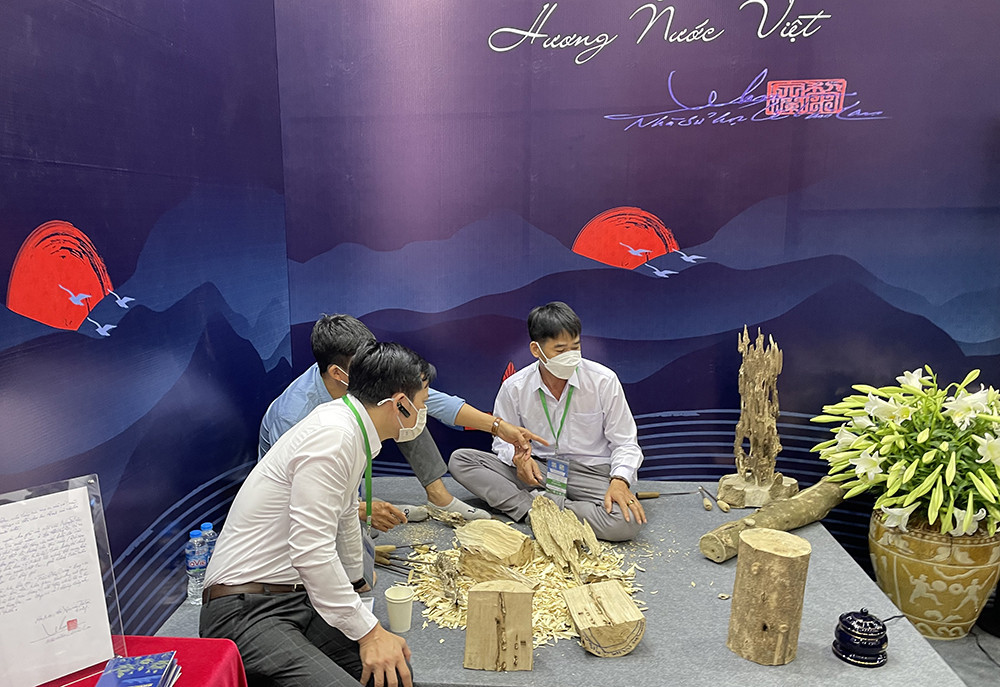
A workshop titled ‘Supporting Vietnamese goods on e-commerce platforms’ was held by Tuoi Tre newspaper and the Vietnam E-commerce Association (Vecom).
Can Vietnamese goods really receive support to enter e-commerce platforms and where Vietnamese goods are on platforms were questions raised at the workshop.
Vecom’s deputy chair Nguyen Minh Duc cite Google’s statistics as saying that in 2023, the revenue of Vietnam’s e-commerce grew by 18 percent, and most consumers (90 percent) bought goods from well-known large platforms such as Shopee and TikTok Shop.
Duc said Vecom has organized many activities for years to give training in e-commerce to businesses. It has joined forces with municipal and provincial departments of industry and trade to popularize e-commerce. Many workshops have been organized to introduce Vietnamese goods to international platforms, such as Amazon.
However, a recent survey showed that of 10 brands with the highest sales on Vietnamese e-commerce platforms, Vinamilk was the only Vietnamese name, and the dairy producer was at the bottom of the list. The other brands, from the US and China, were on higher positions.
In terms of fashion, household use and cosmetic products, the number of people interested in Vietnamese goods just accounted for 17 percent. Farm produce and food was the only bright part of the e-commerce panorama, with Vietnamese consumers interested in 80 percent of domestic brands.
Duc said domestic enterprises need to fully exploit their advantages, including a good understanding about domestic customers and market, and commitment to good post-sale services in order to create competitiveness and boost sales.
They also need to take full advantage of advanced technology to support their sales. They can, for example, organize livestreams to sell goods, and use AI to close deals in online sales sessions.
With technology, which can be easily used, livestream sessions can succeed with thousands of deals made.
According to Duc, many businesses just need 2-3-day training courses to be able to organize livestreams and run ads. Some channels can attract 30,000-40,000 viewers after several days of training and get thousands of orders.
Tran Quoc Bao, deputy CEO of Kido Group, commented that never before have Vietnamese goods received such a big support on e-commerce platforms. Many media campaigns and Vietnamese goods support programs have been organized.
However, the success still depends on whether Vietnamese businesses have reasonable development strategies and if they are persistent to follow the path they have chosen.
Bao suggested redefining the concept ‘online cooperatives’. There should be a person who comes forward and works with e-commerce platforms, while initial expenses are shared by cooperative members. Initial investments on e-commerce development now matter to businesses in their early development stages.
There should also be signs for Vietnamese brands online, so that consumers can recognize Vietnamese goods when shopping on e-commerce platforms.
Nguyen Minh Hung from the HCM City Department of Industry and Trade also commented that though there are many support programs, Vietnamese enterprises just ‘roam around’ on Vietnamese e-commerce platforms.
With strong technology development, Vietnamese enterprises need to build strategies to reach out to the world to have larger sales and markets.
Regarding support to Vietnamese products to enter e-commerce platforms, Nguyen Ngoc Dung, chair of Vecom, said it is necessary to give support to manufacturers and help them overcome difficulties to display their products on e-commerce.
Manufacturing enterprises lack support from agencies, service partners and technology companies, so they find it difficult to develop, especially when foreign-made products are dominating on e-commerce floors.
Also according to Dung, Vietnamese enterprises don’t have much money to advertise their products to successfully bring products to e-commerce markets.
In general, international e-commerce platforms all spend big money to run ads on many platforms, thus triggering people’s curiosity and encouraging them to buy goods. They can quickly attract buyers, though their products are not surely better than domestic products.
TikTok has recently spent billions of dong to help Vietnamese goods appear on online channels. Supporting OCOP (one commune one product) is one of its great successes recently.
OCOP is a program initiated by the Ministry of Agriculture and Rural Development, but implemented by the Ministry of Industry and Trade and Vecom.
Le My